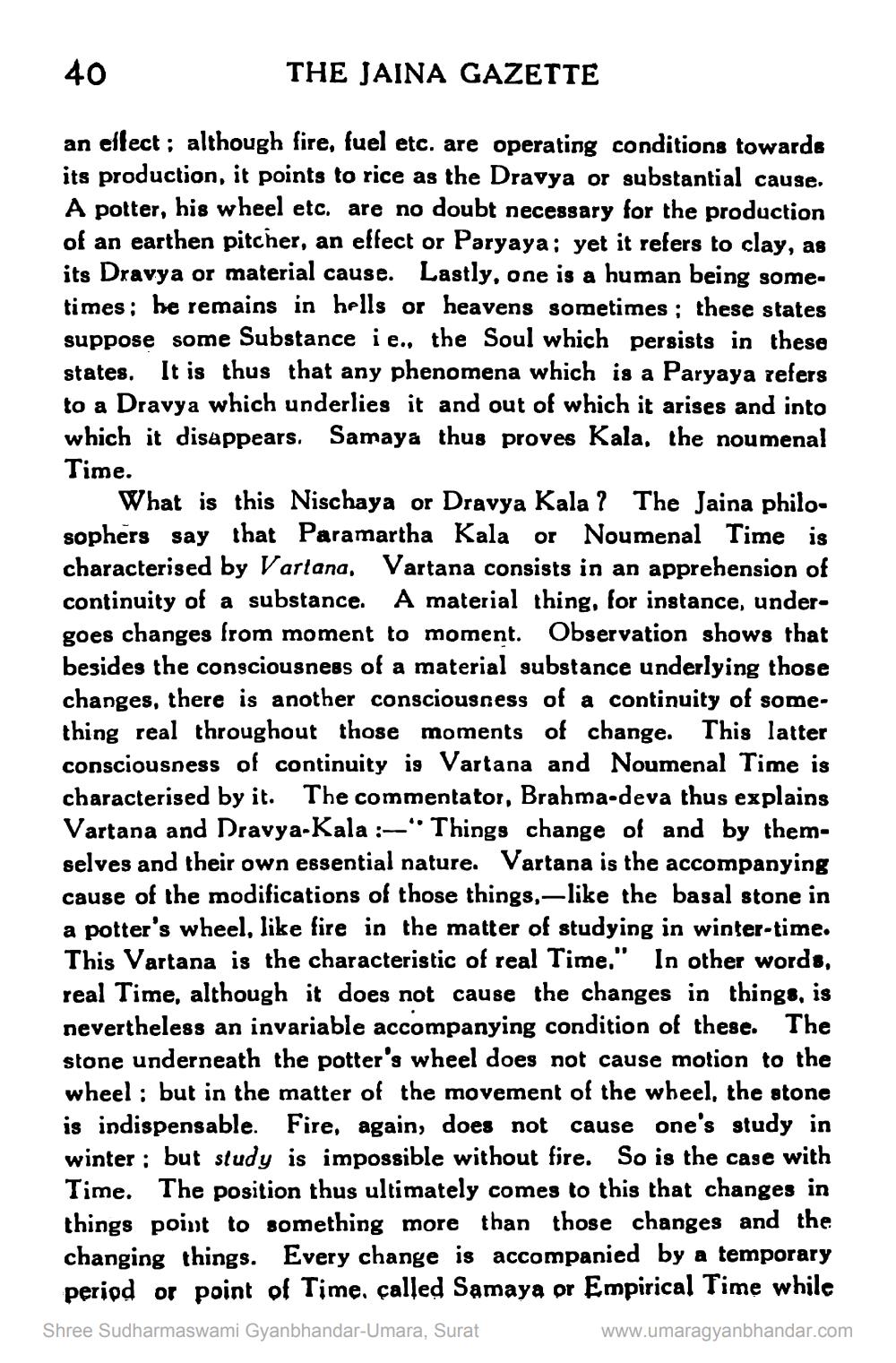________________
40
THE JAINA GAZETTE
an effect; although fire, fuel etc. are operating conditions towards its production, it points to rice as the Dravya or substantial cause. A potter, his wheel etc. are no doubt necessary for the production of an earthen pitcher, an effect or Paryaya; yet it refers to clay, as its Dravya or material cause. Lastly, one is a human being sometimes; he remains in hells or heavens sometimes; these states suppose some Substance ie., the Soul which persists in these states. It is thus that any phenomena which is a Paryaya refers to a Dravya which underlies it and out of which it arises and into which it disappears. Samaya thus proves Kala, the noumenal Time.
What is this Nischaya or Dravya Kala? The Jaina philosophers say that Paramartha Kala or Noumenal Time is characterised by Vartana, Vartana consists in an apprehension of continuity of a substance. A material thing, for instance, undergoes changes from moment to moment. Observation shows that besides the consciousness of a material substance underlying those changes, there is another consciousness of a continuity of something real throughout those moments of change. This latter consciousness of continuity is Vartana and Noumenal Time is characterised by it. The commentator, Brahma-deva thus explains Vartana and Dravya-Kala :-" Things change of and by themselves and their own essential nature. Vartana is the accompanying cause of the modifications of those things,-like the basal stone in a potter's wheel, like fire in the matter of studying in winter-time. This Vartana is the characteristic of real Time." In other words, real Time, although it does not cause the changes in things, is nevertheless an invariable accompanying condition of these. The stone underneath the potter's wheel does not cause motion to the wheel; but in the matter of the movement of the wheel, the stone is indispensable. Fire, again, does not cause one's study in winter but study is impossible without fire. So is the case with Time. The position thus ultimately comes to this that changes in things point to something more than those changes and the changing things. Every change is accompanied by a temporary period or point of Time. called Samaya or Empirical Time while Shree Sudharmaswami Gyanbhandar-Umara, Surat
www.umaragyanbhandar.com




